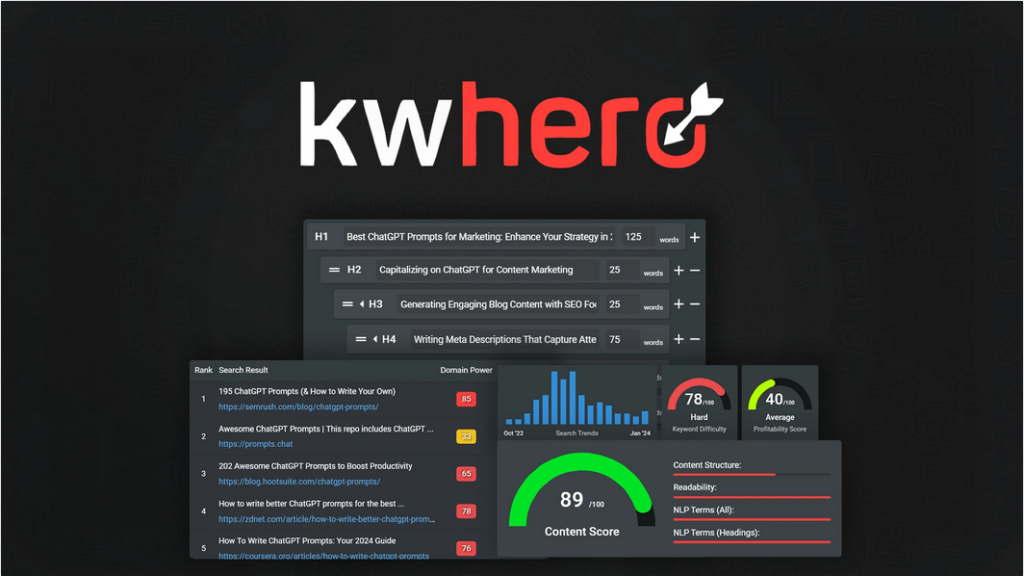ai seo content editing
In today’s digital age, search engine optimization (SEO) plays a crucial role in ensuring that your website ranks high in search engine results. With the advancement of technology,
artificial intelligence (AI) is now being utilized to enhance SEO strategies and improve content editing. AI SEO content editing involves the use of AI-powered tools and algorithms to optimize content for search engines, resulting in increased visibility and traffic to your website.
Benefits of AI SEO Content Editing
AI SEO content editing offers various benefits that can significantly impact your website’s performance:
- Improved Keyword Optimization: AI tools can analyze search trends and suggest relevant keywords to include in your content, helping you target the right audience and improve your search engine rankings. By incorporating these keywords strategically, you can boost your website’s visibility and attract more organic traffic.
- Enhanced Content Quality: AI algorithms can analyze the readability, grammar, and structure of your content, providing suggestions for improvement to make your content more engaging and appealing to readers. This can lead to higher user engagement, longer time spent on your website, and ultimately better conversion rates.
- Automated Content Analysis: AI tools can quickly scan your content for errors, duplicate content, and other issues that may affect your SEO performance, allowing you to make necessary corrections in real-time. This automation saves time and ensures that your content is always optimized for search engines.
- Personalized Content Recommendations: AI can analyze user behavior and preferences to provide personalized content recommendations, increasing user engagement and driving more traffic to your website. By tailoring your content to individual user preferences, you can create a more personalized and engaging experience for your audience.
Read about Programmatic AI SEO Content Creation
How AI SEO Content Editing Works
Understanding the inner workings of AI SEO content editing can help you leverage its capabilities effectively:
- Generate Content Insights: AI tools can analyze your content and provide insights on keyword usage, readability, and overall quality, helping you make data-driven decisions to improve your SEO performance. By understanding these insights, you can make informed decisions to enhance your content strategy.
- Identify SEO Opportunities: AI algorithms can identify potential SEO opportunities, such as low-competition keywords or content gaps, that can help you rank higher in search engine results. By capitalizing on these opportunities, you can gain a competitive edge and improve your website’s visibility.
- Optimize Meta Tags and Descriptions: AI can suggest changes to meta tags and descriptions to improve click-through rates and increase your website’s visibility in search results. By optimizing these elements, you can enhance your website’s appearance in search engine listings and attract more clicks from users.
- Monitor SEO Performance: AI tools can track your website’s SEO performance, providing real-time data on keyword rankings, organic traffic, and other key metrics to help you make informed decisions. By monitoring these metrics, you can identify areas for improvement and continuously optimize your SEO strategy.
Best Practices for AI SEO Content Editing
Implementing best practices can help you maximize the benefits of AI SEO content editing:
- Use AI-Powered Tools: Invest in AI-powered SEO tools that can help you analyze and optimize your content for search engines, such as Clearscope, Surfer SEO, or MarketMuse. These tools can streamline your content editing process and provide valuable insights to enhance your SEO strategy.
- Focus on User Intent: Create content that addresses user intent and provides valuable information to your target audience, as search engines prioritize user-friendly content. By understanding your audience’s needs and preferences, you can create content that resonates with them and drives engagement.
- Optimize for Voice Search: With the rise of voice search, optimize your content for long-tail keywords and conversational queries to improve your chances of appearing in voice search results. By adapting your content for voice search, you can reach a wider audience and enhance your website’s visibility.
- Monitor and Adapt: Regularly monitor your SEO performance and make necessary adjustments based on AI insights and recommendations to stay ahead of the competition. By staying proactive and continuously optimizing your content, you can maintain a competitive edge in the ever-evolving digital landscape.
In conclusion, AI SEO content editing is revolutionizing the way we optimize and improve content for search engines. By leveraging AI-powered tools and algorithms, you can enhance the quality of your content, increase your website’s visibility, and drive more traffic to your site. Incorporate AI SEO content editing best practices into your digital marketing strategy to stay ahead of the curve and watch your SEO performance soar.
AI SEO Content Editing FAQ
What is AI SEO content editing?
AI SEO content editing involves the use of artificial intelligence (AI) powered tools and algorithms to optimize content for search engines, resulting in increased visibility and traffic to your website.
How can AI improve keyword optimization?
AI tools can analyze search trends and suggest relevant keywords to include in your content, helping you target the right audience and improve your search engine rankings.
What are the benefits of AI in content editing?
Some benefits of AI in content editing include improved keyword optimization, enhanced content quality, automated content analysis, and personalized content recommendations.
How does AI SEO content editing work?
AI SEO content editing involves the use of machine learning algorithms and natural language processing to analyze and optimize content for search engines. These tools can generate content insights, identify SEO opportunities, optimize meta tags and descriptions, and monitor SEO performance.


